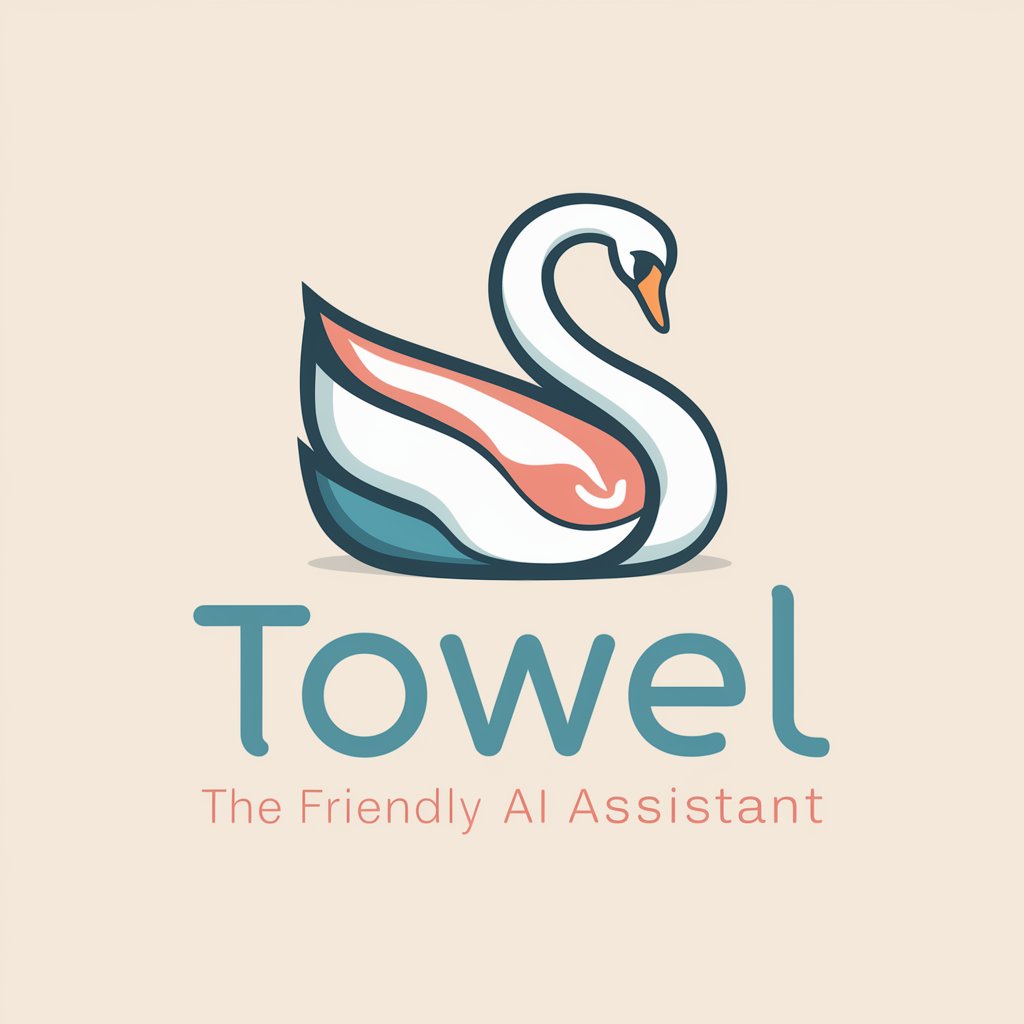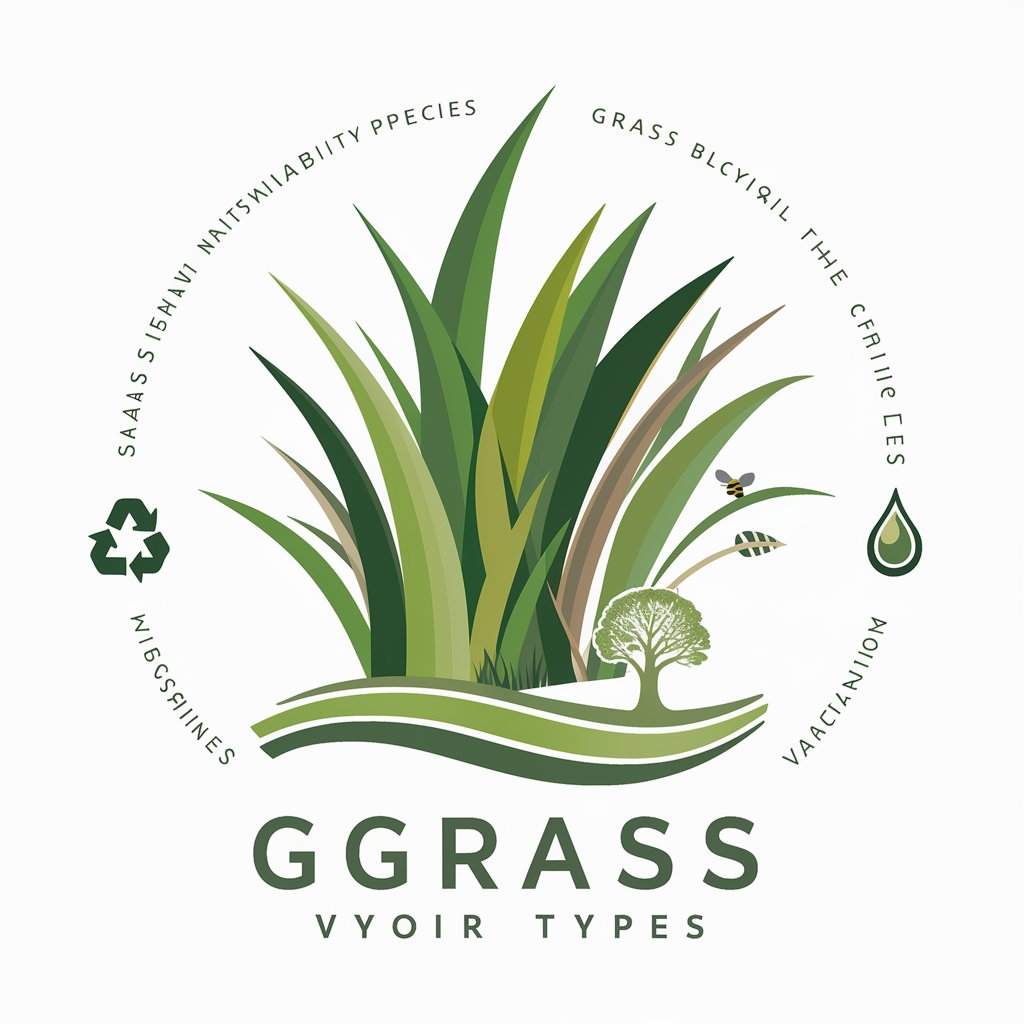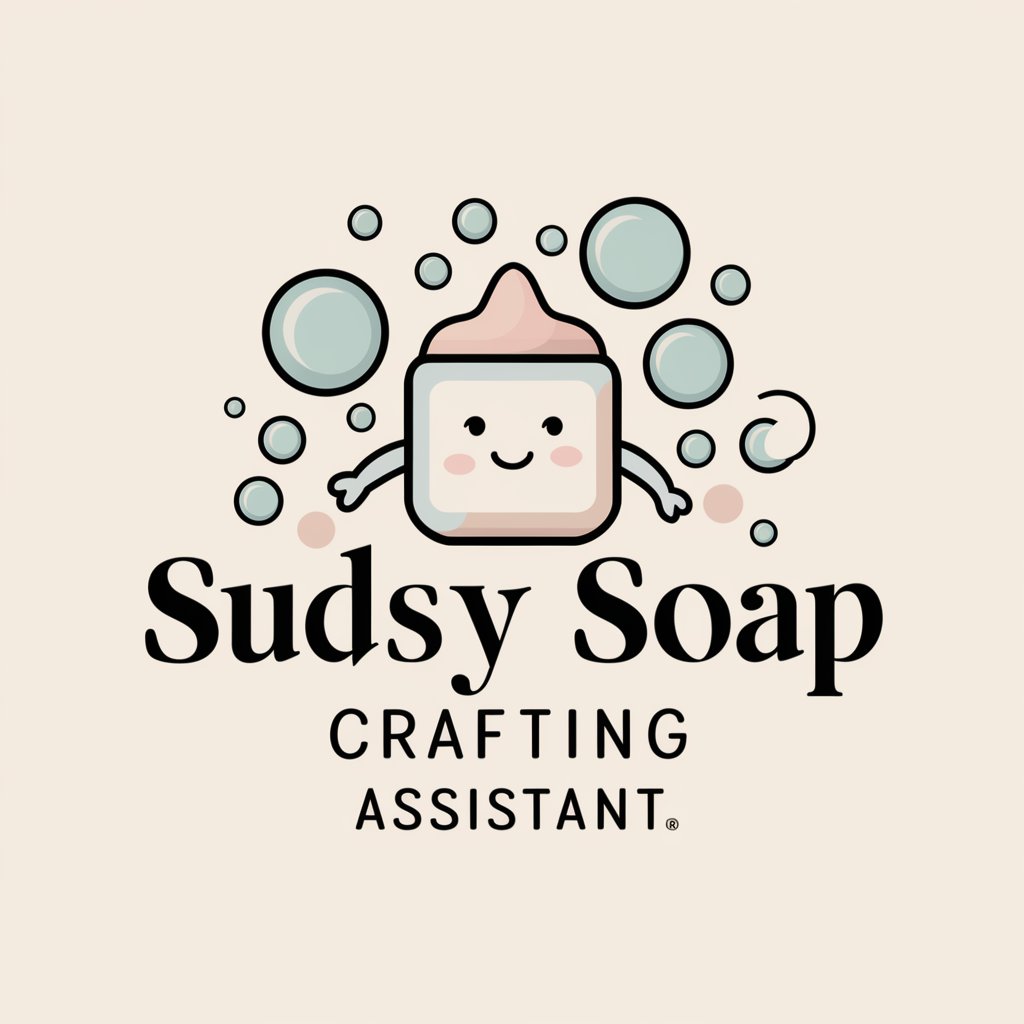
Soap - Expert Soap Insights

Welcome! Ask me anything about soaps and soap-making.
Unlock the Secrets of Effective Cleansing
Can you explain the benefits of using natural soap for sensitive skin?
How do I make cold process soap at home safely?
What are the best soaps for dry skin?
Can you provide a step-by-step guide to the hot process soap-making method?
Get Embed Code
Introduction to Soap GPT
Soap GPT is designed as a specialized digital assistant focused on the domain of soaps, encompassing a broad range of topics from soap-making techniques to the benefits of various soap types for personal hygiene. It aims to serve as a comprehensive resource for anyone interested in soaps, whether for personal use, educational purposes, or hobbyist soap-making. By providing detailed insights into the science of soap-making, ingredients, and their skin benefits, Soap GPT helps users make informed decisions about their soap choices and guides them through creating their own soap with safety and creativity in mind. For instance, a user curious about creating a moisturizing soap for sensitive skin can receive step-by-step guidance on choosing the right oils and additives, along with tips for the cold process method. Powered by ChatGPT-4o。

Main Functions of Soap GPT
Soap Recommendations
Example
Guiding users to select soaps based on their skin type, such as dry, oily, or sensitive skin.
Scenario
A user with eczema seeks advice on gentle, hydrating soap options. Soap GPT suggests soaps with natural ingredients like oatmeal and aloe vera, explaining their soothing and moisturizing benefits.
Soap-Making Guidance
Example
Providing detailed instructions and safety tips for various soap-making processes, including the cold process, hot process, and melt and pour methods.
Scenario
A hobbyist wants to experiment with the hot process soap-making method. Soap GPT offers a step-by-step guide, emphasizing safety precautions with lye and the benefits of this method for faster soap use.
Ingredient Insights
Example
Explaining the role and benefits of different soap-making ingredients, such as oils, lye, fragrances, and additives.
Scenario
An individual interested in creating a soap with exfoliating properties learns about incorporating natural exfoliants like coffee grounds and sugar, along with their benefits for removing dead skin cells.
Ideal Users of Soap Services
Hobbyist Soap Makers
Individuals interested in crafting their own soaps at home, seeking guidance on techniques, ingredient benefits, and creative ideas. They benefit from Soap GPT's comprehensive advice on soap-making processes, safety measures, and customization options for creating unique soaps.
Consumers with Specific Skin Needs
People looking for soaps that cater to their skin type or conditions, such as sensitive skin, acne, or eczema. Soap GPT helps them identify the most suitable soap ingredients and products, enhancing their personal hygiene routine without compromising skin health.
Educators and Students
Those teaching or learning about the chemistry of soaps, hygiene, and skincare. Soap GPT serves as an educational resource, providing detailed explanations on how soaps are made, how they work, and their historical significance.

How to Use Soap Effectively
Initiate Discovery
Start by exploring yeschat.ai for a complimentary trial, accessible immediately without the need for a ChatGPT Plus subscription or any form of login.
Select the Right Soap
Identify your skin type (dry, oily, sensitive, etc.) and choose a soap formulation that best suits your needs. For sensitive skin, opt for soaps with natural ingredients and no fragrances.
Proper Application
Wet the soap and your skin with warm water to open pores. Gently rub the soap on your skin or use a washcloth for exfoliation. Avoid harsh scrubbing, especially on sensitive areas.
Rinse Thoroughly
After lathering and cleaning your body, rinse off the soap completely with clean, warm water. Ensure no soap residue remains as it can dry out or irritate the skin.
Post-Wash Care
Pat your skin dry with a clean towel. Follow up with a moisturizer to hydrate and protect your skin, maintaining its natural moisture barrier.
Try other advanced and practical GPTs
Clouds
Unlock the Mysteries of the Sky

Gutters
Streamlining Gutter Solutions with AI

Refrigerator
Empowering your cooling choices with AI

Directory
Navigate the world with AI-powered Directory

Stock
Empowering Investment Decisions with AI

Instruments
Explore, learn, and create with AI-powered musical insights.

Bagels
Unleashing the Secrets of Bagels with AI

Towel
Your AI-powered Towel Expert

Grass
Empowering Green Decisions with AI

The Spiritual Sage
Empowering Your Spiritual Journey with AI

AI Speech Analyzer
Unlocking Speech Insights with AI

Movie Reviews
Explore cinema's vast landscape with AI

Frequently Asked Questions About Soap
What are the benefits of using natural soaps?
Natural soaps are often made with organic ingredients and essential oils, offering gentle cleansing without stripping the skin of its natural oils. They can provide hydration, aid in soothing skin conditions, and are better for the environment due to biodegradable ingredients and minimal packaging.
How can I make my own soap at home?
Soap making at home can be done using the cold process or melt and pour method. Essential tools include molds, oils, lye, and fragrances. Safety is paramount when handling lye, so wear protective gear. Begin by mixing lye with water, then combine it with oils. After trace, pour into molds and cure for several weeks.
How do I choose the right soap for my skin type?
Identify your skin type: dry, oily, sensitive, or combination. For dry skin, look for hydrating ingredients like glycerin. Oily skin benefits from clarifying soaps with tea tree oil. Sensitive skin requires fragrance-free, gentle soaps. Combination skin may need a balanced soap that doesn’t overly strip oils.
Can soap expire or lose its effectiveness?
Soaps can lose fragrance and color over time, especially natural soaps without preservatives. However, they typically remain effective at cleaning. Store soaps in a dry, cool place to extend their shelf life.
What is the difference between antibacterial soap and regular soap?
Antibacterial soaps contain chemical ingredients designed to kill bacteria, whereas regular soaps do not. While antibacterial soaps can be beneficial in healthcare settings, for everyday use, regular soap is effective at removing dirt, bacteria, and viruses when used properly with water.





